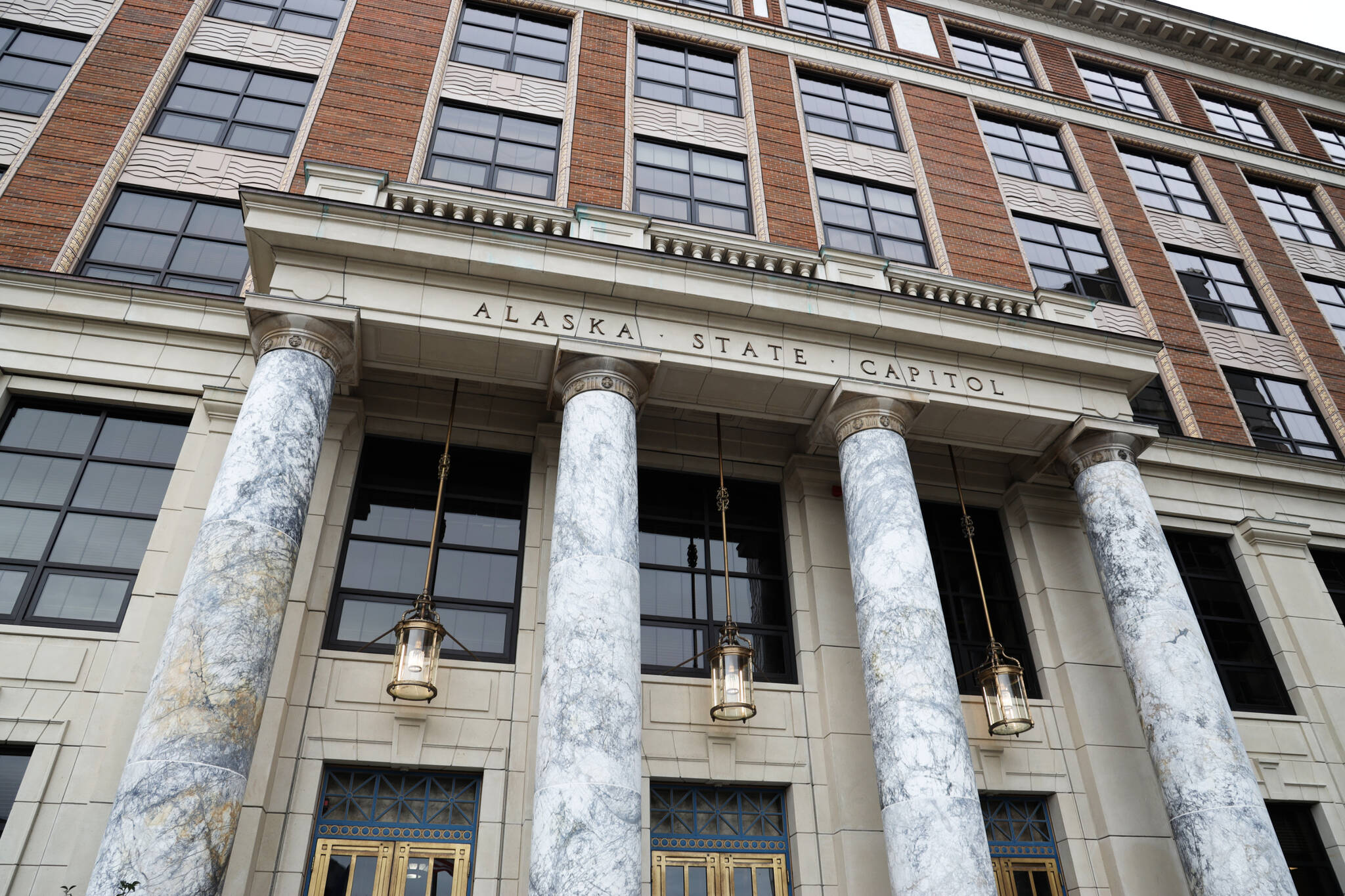This year’s election certainly didn’t deliver a red wave in Alaska. Not only did Democrats pick up two seats in the state Senate. Eight Republicans teamed up with them to form a 17-member bipartisan majority. And that purple tide threatens to inundate the uncompromising wing of the state Republican Party.
It was only four years ago when the party attempted to excommunicate three House Republicans for joining a much smaller bipartisan coalition. If the party tried that now, there wouldn’t be much left to it.
Tuckerman Babcock was the author of that effort. He’s part of this story too after losing his Senate race to a Republican who will be in the new majority.
Senator-elect Cathy Giessel, R-Anchorage, has been on both sides. A decade ago, when the Senate was evenly split between Democrats and Republicans, she opted to join three other Republicans unwilling to compromise their conservative agenda. She gradually came to the realization “there’s a whole world out there with other ideas that are just as valid” as the ones she and her colleagues promoted back then.
Sen. Shelley Hughes (R-Palmer), who will be a minority leader of three, doesn’t understand that yet.
“Because we are all Republicans, I believe we should make all efforts to work together the best we can,” she pleaded in an email to party members expressing her opposition to forming a bipartisan majority. “Otherwise, what does the R after our name mean?”
Hughes also erroneously projected that R across the entire electorate by justifying her case on the basis that “65 percent of voters cast their first-place vote for a Republican.”
While that statistic is accurate, it’s like assuming 78% of Juneau voters must be Democrats because Sen. Jesse Kiehl got that share of the vote while running unopposed.
Likewise, Hughes’ overly simple analysis dramatically skews the results in the four senate districts where two or more Republicans ran without competition from Democrats or non-partisan candidates.
In one of them, current Eagle River Rep. Kelley Merrick won with 58% of the vote.
In March 2021, she broke a 20-20 deadlock for control of the House by agreeing to caucus with the Democrats, independents, and Rep. Louise Stutes (R-Kodiak), who became the Speaker.
“There are members that have unyielding positions, and when you’re in a deadlock, somebody has to be willing to compromise,” Merrick explained. But that rational, well-meaning decision earned her a censure by Republican party officials in her district.
“She couldn’t get elected dog catcher today, even if we elected dog catchers,” former Lt. Gov. Craig Campbell wrote after the censure vote.
Today, Merrick’s decisive senate victory proves she understands her constituency better than Campbell, Hughes and other Republicans who are deaf to anyone outside the party’s echo chamber.
Giessel’s victory over Sen. Roger Holland delivered the same message.
As Senate President during the 2019-20 legislative session, Geisel worked too well with Senate Minority Tom Begich and not well enough with Gov. Mike Dunleavy for Holland’s liking. He beat her in the 2020 Republican primary by almost 2-1.
Giessel won her seat back from Holland in this year’s ranked choice election. Each of them and the Democratic candidate received 33% of the first-place votes. The right way to read that is district voters categorically rejected Holland’s uncompromising approach to legislating.
Merrick and Giessel aren’t Democrats. But Hughes was wrong to lump their share of the vote with the 76% she got while defeating her Democratic opponent.
The results for statewide offices also undermine Hughes’ reading of Alaska’s electorate.
Gov. Mike Dunleavy was reelected, but his vote total combined with Republican Charlie Pierce was 10 points shy of the numbers she’s trumpeting.
Despite being censured by state party officials, Sen Lisa Murkowski bested Republican Party endorsed Kelly Tshibaka in both first-place votes and ranked choice voting.
And Democratic Rep. Mary Peltola beat Republicans Nick Begich and Sarah Palin, and Libertarian candidate Chris Bye, who collectively only mustered 51.2% of the first-place votes.
The main lessons the Republican party should take from this election is that Alaskans want respectful cooperation when trying to solve the state’s problems. And the unyielding resistance to compromise of the party’s right flank cost them lost control of the Senate.
• Rich Moniak is a Juneau resident and retired civil engineer with more than 25 years of experience working in the public sector. Columns, My Turns and Letters to the Editor represent the view of the author, not the view of the Juneau Empire. Have something to say? Here’s how to submit a My Turn or letter.

